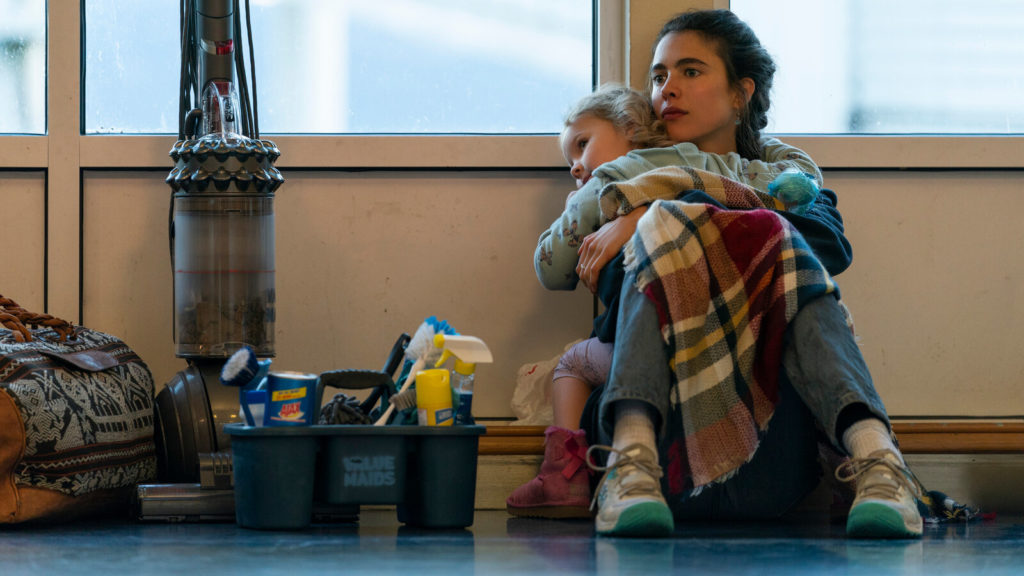BY ANDREW HORTON
Maid is a new drama on Netflix that portrays a domestic abuse survivor, Alex, and her two-year-old daughter attempting to flee an abusive relationship. Once free of the immediate danger of living with her abuser, she faces an uphill battle to find support.

Her family is unable to help her, so she attempts to access temporary government support to help her and her daughter stay safe. While attempting to access these supports that exist to help people in situations like hers, she faces many obstacles.
As a caseworker at Crisis Assistance Ministry, I work with people every day who are faced with many of these same challenges:
- Alex tries to find employment so that she can have income coming in. Through her social worker she is able to find a job cleaning houses. However, when she asks about daycare, she learns that you must have income to be approved for a day care voucher. She then asks what she should do with her daughter while she is working? This chicken and the egg problem is one that faces our customers often. A household needs income to qualify for many programs in our community but needs those same programs in order to work and produce income. This creates a challenge to overcome, especially if the individual’s family support is lacking.
- Alex searches for more stable housing by applying for housing assistance. But she quickly learns that before she can use the housing voucher she’s provided the landlord must agree to accept it. There is no guarantee that they will. In Charlotte, affordable housing is an ever growing and pressing issue. The waitlist to receive assistance is long and many face the same issue of finding a home once approved as what is depicted in the show. This can lead to a frustrating and dangerous cycle for our neighbors, even after they are approved for housing assistance.
- Alex faces hurdles in starting her job as a “maid”. When she is hired her manager tells her that she will make $12.50 an hour. But that comes with many stipulations: she must purchase all of her own supplies and her uniform, use her own car, and pay for her own gas to get to jobs. In addition, the owner of the company doesn’t want to pay for benefits, so hours are capped at 32 a week. She also is new, so she isn’t given full shifts to start off with. Doing basic math even if Alex worked 32 hours a week, she would make $400 a week before taxes and before paying for her transportation and supplies. The people who come to Crisis Assistance Ministry for help often tell me about jobs like this. Whether it’s starting a new job at a factory and having to buy steel-toed boots or being required to pay for supplies, all these things add up and reduce the income they could be making.
Based on Stephanie Land’s bestselling 2019 memoir of the same name, Maid overall is a fantastic snapshot of the red tape, obstacles, and feelings that people experiencing poverty face. Its themes are ones that I see in my work. Easier access to services, a livable wage, and dignity are desperately needed for all our community members.

Andrew Horton is an Economic Mobility Specialist at Crisis Assistance Ministry where he has been working with individuals and families in financial crisis for a little over three years. A native of Indiana, he will complete his Master of Public Administration degree at UNC Charlotte this December. Andrew and his wife Olivia live in Charlotte with their three cats: Claude, Clementine, and Calvin. He’s also known around the office for organizing the staff’s annual NCAA tournament pool.
